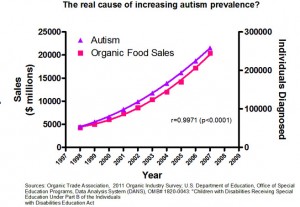The number of people who have contracted measles from an outbreak started in Disneyland has topped 50 this week, making it a very good time to talk to your friends and family about the importance of vaccination. Vaccines are one of the most successful public health advances, practically eliminating such awful diseases as polio and smallpox. Since 2000, vaccines have been credited with decreasing the number of worldwide childhood deaths by 3.6 million, even though the population has increased by 1 billion in the same time frame. Sadly, the success of vaccination may be contributing to the current outbreaks of diseases, like the measles, that we thought were a thing of the past. Without the memory of closed public pools and rows of iron lungs in hospital wards it is easier to weigh the perceived risks of vaccination as the scarier option. Below are ways you can answer some common questions about vaccination as well as some resources about the safety and efficacy of vaccination.
Is a Measles Outbreak Really That Bad?
Short answer: YES! In 1980, before widespread vaccination 2.6 million people died of the measles. In 2012, with 84% of babies vaccinated that number was only 122,000 worldwide. About 1 or 2 in 1,000 babies who contract the measles will die, whereas the worst vaccine side effect, a severe allergic reaction, only occurs in 1 in 1,000,000 babies. The measles are one of the most contagious diseases known. Measles spread through the air and an unvaccinated person can still contract the disease if they enter the room 2 hours after the infected person has left. The Ro, or average number of people one sick person will infect, for measles is 18! For comparison, the Ro for Ebola is 2. This is why it is important to quarantine unvaccinated people potentially exposed to the measles. A measles outbreak is also incredibly costly, with contact tracing and other measures costing ~$33,000 per person infected.
Shouldn’t It Be My Choice Whether To Vaccinate My Children?
Many of the health decisions that we make, like what foods we eat, are choices that mainly affect us as individuals. The choice to refuse vaccination, though, affects society at large since the success of vaccines rests on herd immunity. Transmission of a disease can be prevented if the majority of people are immune. Herd immunity protects those who cannot be vaccinated because they are too young or have a compromised immune system that prevents them from being vaccinated. Herd immunity also protects the minority of people vaccinated that don’t gain protection (most vaccines are ~80-85% effective, which is pretty darn good, and the measles vaccine is ~95-98% effective.). As long as between 83-94% of the population is vaccinated, it is highly unlikely that a disease will spread. US vaccination rates are now ~91% on average, lower than half the countries in the world, and even lower in certain areas, including Marin County, CA where only 83% of kindergartners were vaccinated in 2010. If only a few families opt out of vaccinations, they still receive protection from herd immunity. Once too many people opt out, the rest of us are placed in danger, just like the 2 babies too young for vaccination that contracted the measles at Disneyland. It is in society’s best interest to start making the cost of refusing to vaccinate higher, especially since the safety of vaccination has been shown repeatedly (serious side effects from vaccines are very rare). For instance, unvaccinated children are barred from entering many daycare facilities and we could make it much harder to receive vaccination exemptions for children in public schools. Similarly some pediatricians are refusing to treat unvaccinated children, which will protect their other patients.
But Don’t Vaccines Cause Autism?
No, vaccines do not cause autism. This idea was started thanks to a fradulent, now retracted paper by Andrew Wakefield (who has since had his medical license revoked). Since the publication of that paper, many studies including over 14.7 MILLION children have found NO LINK between autism and vaccination. Anti-vaxxers will trot out figures showing increasing autism rates as vaccination rates have increased. Don’t fall for this, that is simply correlation, not causation. In fact, there is a similarly good correlation between autism rates and organic foods sales, which I’m sure we can all agree is a highly unlikely cause of autism.
Some Great Resources About Vaccines
Wonderful cartoon by the Nib explaining how vaccines work, how shady the Wakefield study was, and how important vaccinations are.
Upworthy infographic sponsored by the Bill and Melinda Gates Foundation showing the evidence that vaccines do not cause autism.
Business Insider video explaining herd immunity and why ‘If you don’t vaccinate your kid, please don’t ask me not to judge you.’
Skeptical Raptor’s explanation of the mumps outbreak in the NHL and why vaccinated players can still get the mumps.
Journal article for clinicians refuting 3 common anti-vaxx arguments (behind a paywall).
* *Updated on 2/8/15 to include risk of death from measles vs risk of severe allergic reaction to MMR vaccine, efficacy rate of MMR vaccine, and clarification that I am in no way suggesting the sale of organic food causes autism.**

Lisa, I think you missed the point. There is just as good a correlation between organic food and autism as between vaccines and autism, which serves to illustrate the point that correlation is not causation. Dr. Wilkinson made an excellent analogy, in fact.
OMG. The article was intelligent before it went so far as to correlate autism with organic food sales. You are just irresponsible now – are you okay with that title?
It wasnt trying to say that organic foods caused autism it was explaining how it was simply correlation but not the cause of it.